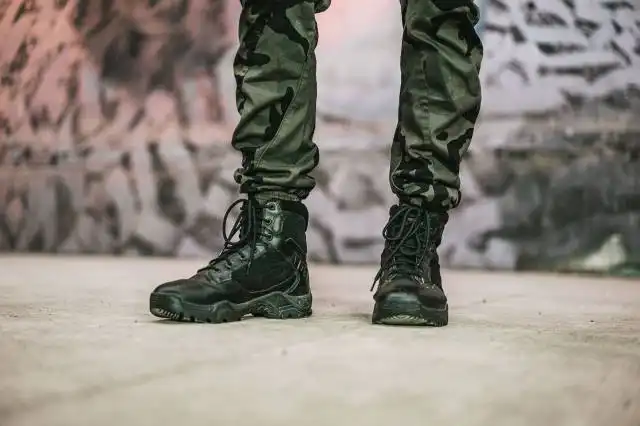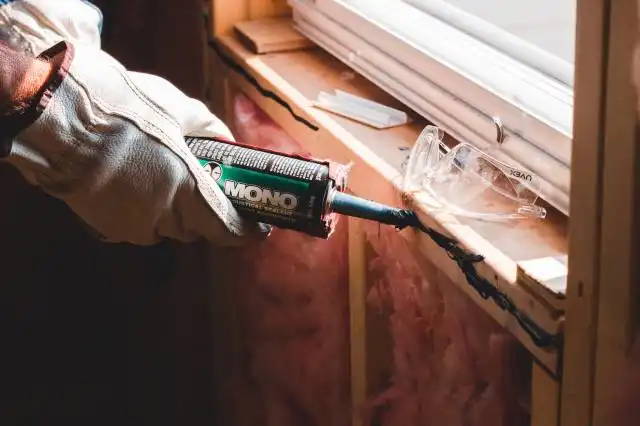Start a Sport Memorabilia Business
Reliving Sports Glory: A Venture into Sports Memorabilia Business
| Updated


SPORT MEMORABILIA BUSINESS
Dive into the exciting world of a Sports Memorabilia Business, where nostalgia meets sportsmanship! Picture yourself connecting fans with relics from their favorite sporting events or athletes. This business offers a treasure trove of trading cards, autographed items, vintage sports paraphernalia and so much more to ardent aficionados. It's not just a business, but a celebration of historic sporting moments, always keeping the sports enthusiasts' heart pumping!
Jump to Business Plan
RELATED BUSINESS IDEAS
Browse ALL Retail & Shopping Business Ideas
Discover Your Perfect Domain
Unlock the door to your online success with our hand-picked selection of premium domain names. Whether you're starting a new venture or rebranding an existing one, the right domain can set the tone for your digital presence. Browse through our curated list, each with its unique potential to enhance your brand's visibility and credibility.
SPORT MEMORABILIA MINI BUSINESS PLAN
This a quick reality check to help you identify the strengths and weaknesses of your business concept before you dive in.
Inventory Management:
- Initial Investment: An approximate sum of $10,000-$25,000 for unique, quality sports memorabilia.
- Supply Channels: Work with trusted memorabilia dealers, auction houses, and personal collectors.
Marketing and Customer Acquisition:
- Website/Online Store: Establish an online presence with e-commerce functionality.
- Social Media and SEO: Schedule daily posts showcasing new memorabilia and use targeted hashtags to improve visibility. Initiate SEO practices to increase online visibility.
Sales and Customer Experience:
- Event Participation: Attend sports events, conventions, or trade shows to network and sell directly.
- Authenticity Guarantees: Provide a certificate of authenticity with every purchase, ensuring buyer confidence.
Cost Control:
- Shipping Costs: If selling online, consider offering free shipping for purchases above a certain price to incentivize larger purchases.
- Insurance: Allocate a budget for insurance to cover valuable memorabilia.
Business Operations:
- Open Hours: If you have a physical store, operate at least 6 days a week, 7-9 hours a day.
- Transaction Volume: Aim for 5-15 transactions per day at an average sale price of $50-$250 to meet the daily earning target.
These figures are rough estimations based on industry averages and can significantly vary based on many determining factors. Always perform a thorough market research and have a solid business plan.
NOT WHAT YOU HAD IN MIND? Here are more ideas



Browse ALL Retail & Shopping Business Ideas
Grab Your Business Website Name
Before you get caught up in the whirlwind of setting up your business, invest in a domain name. It's a small but significant step that lays the foundation for your brand and makes it easier for customers to find and trust you. Just like you wouldn't build a house without securing the land first, don't build a business without securing your domain name.
"Why? Can't that wait?" Here's why it shouldn't
Step 1: Determine if the Business is Right for You
Before starting a sport memorabilia business, it is important to determine if it is the right endeavor for you. To do this, you should research the startup and ongoing expenses associated with the business. Start-up expenses may include the cost of inventory, business licenses, and insurance. Ongoing expenses may include rent, utilities, and employee salaries. Additionally, you should research potential sources of revenue, such as selling memorabilia online, at auctions, or through a retail store. Knowing the costs and potential sources of revenue can help you decide if the business is right for you.
Breakdown of Startup Expenses
When starting a sport memorabilia business, it is important to understand the startup costs associated with the venture. These costs may include the cost of inventory, business licenses, and insurance. Depending on the type of memorabilia you plan to sell, the cost of inventory can vary greatly. Business licenses and insurance are also necessary to protect your business and ensure it is compliant with local laws. Additionally, you may need to pay for a website, marketing materials, and other supplies. Knowing the startup costs associated with the business can help you decide if it is the right endeavor for you.
Breakdown of Ongoing Expenses
In addition to startup costs, it is important to understand the ongoing expenses associated with a sport memorabilia business. These expenses may include rent, utilities, and employee salaries. Depending on the size of the business, rent and utilities can be significant expenses. Additionally, if you plan to hire employees, you will need to factor in their salaries. Knowing the ongoing expenses associated with the business can help you decide if it is the right endeavor for you.
Examples of Ways to Make Money
When starting a sport memorabilia business, it is important to understand the potential sources of revenue. These may include selling memorabilia online, at auctions, or through a retail store. Selling online can be a great way to reach a larger audience and increase sales. Selling at auctions can also be a great way to make money, but it may require more time and effort. Additionally, selling through a retail store can be a great way to reach local customers. Knowing the potential sources of revenue can help you decide if the business is right for you.
Step 2: Name the Business
When naming a business, it is important to consider the type of business, the target audience, and the overall message the business wants to convey. It should be easy to remember, spell, and pronounce. It should also be unique and stand out from the competition. Additionally, it should be legally available and not already taken. It is also important to consider the domain name and social media handles. It is important to check the availability of the name on all platforms before settling on one.
When considering the name, it is important to think of words that are associated with the business. For a sport memorabilia business, words like “collector”, “vintage”, “legendary”, and “memorable” may be good options. It is also important to consider the type of memorabilia that will be sold. If the business will specialize in a certain sport, the name should reflect that. For example, if the business will specialize in baseball memorabilia, the name could include words like “baseball”, “bats”, “balls”, or “stadium”.
Once a few names have been chosen, it is important to do a search to make sure the name is not already taken. The business should also check if the domain name and social media handles are available. If they are not, the business should consider another name.
It is also important to consider the legal aspects of naming the business. The business should check with the local government to make sure the name is not already taken and that the name does not infringe on any trademarks. Additionally, the business should consider registering the name as a trademark to protect it from being used by another business.
Once the business has chosen a name, it is important to make sure the name is used consistently across all platforms. This includes the website, social media, and any other marketing materials. This will help the business create a strong brand identity and will make it easier for customers to find the business.
Step 3: Create a Business Plan
Creating a business plan is an essential step in starting a sport memorabilia business. A business plan should include a mission statement, a description of the products and services offered, a market analysis, a description of the target market, a description of the competitive landscape, a description of the business operations, a description of the management team, a description of the marketing strategy, a description of the financial plan, and a description of the exit strategy.
The mission statement should be a concise description of the purpose of the business, its goals, and its values. The description of the products and services should include a detailed description of the sport memorabilia that will be offered, as well as any additional services that may be offered. The market analysis should include an analysis of the current market for sport memorabilia, as well as potential future markets. The description of the target market should include a detailed description of the demographic and psychographic characteristics of the target customers. The description of the competitive landscape should include a description of the current competitors and potential future competitors. The description of the business operations should include a description of the organizational structure, the processes and procedures, and the technology used. The description of the management team should include a description of the qualifications and experience of the management team. The description of the marketing strategy should include a description of the marketing tactics and channels that will be used to reach the target market. The description of the financial plan should include a detailed breakdown of the startup costs, ongoing costs, and potential sources of revenue. The description of the exit strategy should include a description of the potential exit options and the timeline for achieving them.
Step 4: Obtain Necessary Licenses and Permits
When starting a sport memorabilia business, it is important to obtain the necessary licenses and permits. Depending on the type of business you are running, you may need to obtain a business license, a seller’s permit, and a resale permit. Additionally, you may need to obtain a Federal Employer Identification Number (FEIN) and register with the IRS. It is important to research the specific licenses and permits required in your state or municipality.
Where to Obtain Licenses and Permits
Licenses and permits can usually be obtained from the local government office in your area. Depending on the type of business, you may need to apply for the licenses and permits online or in person. Additionally, you may need to submit a copy of your business plan and provide proof of insurance. It is important to research the specific requirements for obtaining the necessary licenses and permits.
Cost of Licenses and Permits
The cost of licenses and permits will vary depending on the type of business and the state or municipality in which you are operating. Generally, the cost of licenses and permits can range from a few hundred dollars to a few thousand dollars. Additionally, you may need to pay an annual fee to renew the licenses and permits. It is important to research the specific costs associated with the licenses and permits required for your business.
Benefits of Obtaining Licenses and Permits
Obtaining the necessary licenses and permits is important for any business. Having the necessary licenses and permits will help to ensure that your business is operating legally and will protect you from any potential legal issues. Additionally, having the necessary licenses and permits will help to ensure that your business is in compliance with all applicable laws and regulations.
Step 5: Find a Location
When deciding on a location for a sport memorabilia business, there are several factors to consider. First, the location should be easily accessible to customers. It should also be in a safe area with plenty of parking. Additionally, the location should be large enough to house all the inventory and have enough space for customers to browse. It should also be in an area with a high concentration of sports fans or in a tourist area.
Securing a Location
Once a suitable location has been identified, the next step is to secure it. This may involve signing a lease or purchasing the property. It is important to read the lease carefully and make sure all the terms are understood before signing. Additionally, it is important to research the zoning laws and regulations in the area to make sure the business is in compliance. Finally, it is important to make sure the property is up to code and meets all safety requirements.
Step 6: Set Up a Website
Setting up a website for your sport memorabilia business is a great way to reach a larger audience and increase sales. You can create a website yourself, or you can hire a web designer to create a professional website for you. When setting up a website, make sure you have a clear purpose and goal in mind. You should also include a shopping cart, payment gateway, and a secure checkout system. Additionally, make sure the website is mobile-friendly and easy to navigate. You should also include a blog, which can help you stay connected with your customers and keep them informed about new products and promotions.
Tips on Promoting Your Website
Once you have your website set up, it’s important to promote it. You can do this through social media, email marketing, and search engine optimization (SEO). Social media is a great way to reach potential customers and promote your business. You can also use email marketing to reach out to customers and inform them about new products and promotions. Additionally, SEO can help you rank higher in search engine results, which can help you reach more customers. Finally, you can also use paid advertising to promote your website and reach a larger audience.
Step 7: Market the Business
The seventh step in starting a sport memorabilia business is to market the business. There are a variety of marketing strategies that can be used to promote the business. Examples of marketing strategies include creating a website, using social media platforms, attending trade shows, and advertising in local newspapers. Additionally, creating a mailing list and emailing customers with updates on new products and promotions can be a great way to reach potential customers.
Develop a Brand
It is also important to develop a brand for the business. This includes creating a logo, slogan, and other visuals that can be used to represent the business. Additionally, creating a unique customer experience is important in order to stand out from the competition. This can include providing excellent customer service, offering unique products, and offering discounts or promotions.
Utilize Networking
Networking is also an important part of marketing the business. This includes connecting with other businesses in the industry, attending industry events, and joining industry associations. Additionally, networking with customers and potential customers is important in order to build relationships and gain insight into the needs of the customer.
Measure Results
Finally, it is important to measure the results of the marketing efforts. This includes tracking website traffic, sales, and customer feedback. Additionally, measuring the return on investment (ROI) of marketing efforts is important in order to determine which strategies are most effective.
Step 8: Source Memorabilia
Sourcing memorabilia can be one of the most difficult parts of starting a sport memorabilia business. It is important to find reliable sources for the items you will be selling. One way to do this is to attend auctions and estate sales. This can be a great way to find rare and unique items. You can also look for private sellers who may have items that they are looking to sell. It is also important to build relationships with other collectors and dealers in the industry. This can help you to find items that you may not have been able to find otherwise. Additionally, you can look for items online. There are many websites that specialize in selling sport memorabilia. You can also look for items on popular auction sites such as eBay. Finally, you can look for items in local stores and antique shops.
Step 9: Promote the Business
Tips on Promoting the Business
Promoting your sport memorabilia business is essential for success. One way to do this is to create a website for your business. This will allow customers to easily find and purchase items from you. Additionally, you can create social media accounts for your business. This will allow you to reach a wider audience and engage with potential customers. You can also create promotional materials such as flyers and business cards to help spread the word about your business. Additionally, you can look for opportunities to participate in trade shows and conventions. This will allow you to showcase your items and meet potential customers. Finally, you can look for opportunities to partner with other businesses in the industry. This can help to increase your visibility and reach a larger audience.
Step 9: Manage Finances
When starting a business, it is important to keep track of all your finances. This includes both your startup costs and your ongoing expenses. You should create a budget and track your spending to ensure that you are staying within your budget. Additionally, you should create a system for tracking your income and expenses, such as a spreadsheet or accounting software. This will help you to keep track of your finances and ensure that you are staying on top of your budget.
Tips on Saving Money
When running a business, it is important to save money whenever possible. This can be done by shopping around for the best deals on supplies and services, as well as negotiating with vendors. Additionally, you should look for ways to cut costs, such as reducing overhead expenses or outsourcing certain tasks. Finally, you should look for ways to increase your revenue, such as offering discounts or promotions. By taking these steps, you can ensure that you are running a profitable business.
EXPLORE MORE CATEGORIES
Browse ALL Business Idea Categories
TAKE THE NEXT STEPS










